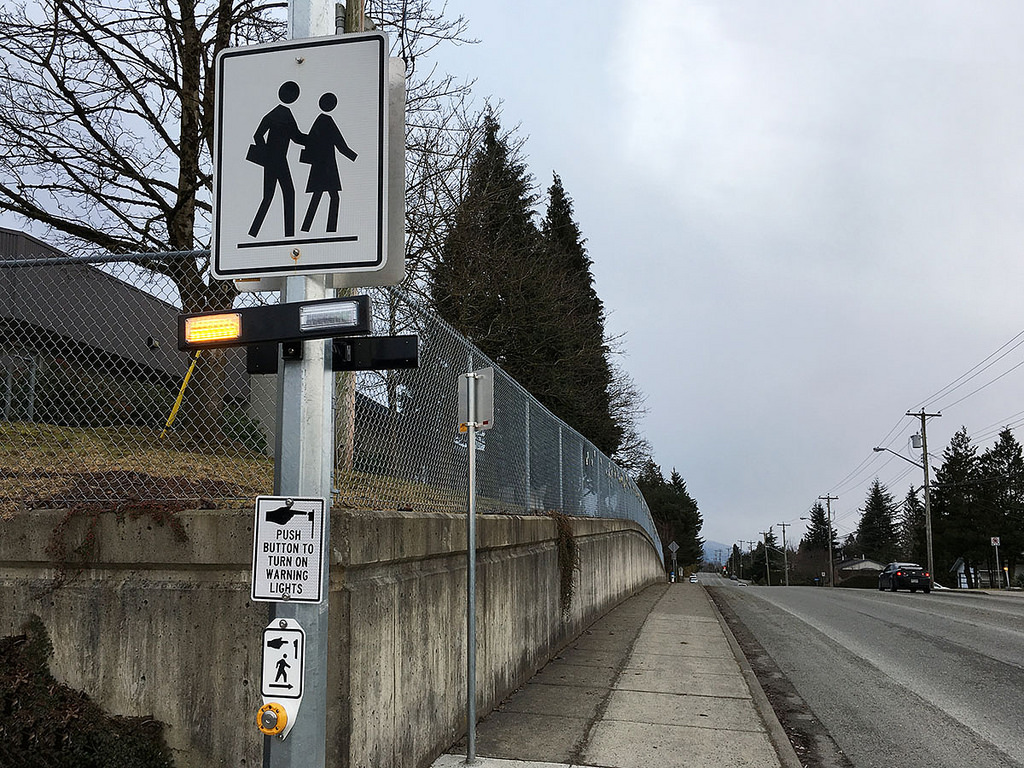O, Canada — our neighbor to the true north is not only strong and free, but way safer.
The death rate on Canadian roadways is less than half that of the United States — 5.2 per 100,000 residents versus 11.6 here — and even accounting for the fewer miles driven by the average Canuck compared to John Doe, Canada has 43 percent fewer traffic fatalities per billion kilometers traveled.
If America was more like Canada, about 22,000 lives would have been saved last year, according to the International Transport Forum [PDF].
How could two nations sharing a border, a love of democracy and more or less the same culture (minus lacrosse) have such different outcomes on the roads? Well, it's no mystery: Canada has better laws and far more mass transit use. So, no, it's not just that they're such nice people.

To learn more, we chatted with Neil Arason of the British Columbia Ministry of Health and author of "No Accident."
Streetsblog: What explains Canada's better performance?
Arason: Of the wealthier countries tracked in the International Road Safety Annual Report, the U.S. is actually the worst.
I don’t think Canada’s record is very good. We have countries now that are at 3 (U.K.), 2.5 (Sweden).
Americans do drive a lot. That’s part of it. Canada has more people that commute by public transit, about 12 percent compared to about 5 percent in the U.S.
What else is important?
Our laws are generally stronger. You still have a lot of states that don’t even have any driver distraction laws [for] cell phone use. And even in states that have them, some situations are exempt. In Canada, they apply to all drivers.
[In the U.S.] you have what’s called primary and secondary offenses. A police officer can only pull someone over if he or she is committing a primary offense. All our laws are primary laws.
Canada's alcohol impairment laws are much stronger. British Columbia tough laws have had a huge effect. It's reduced alcohol related fatalities by 40 percent.
All of Canada's laws are penalties that don’t involve the criminal code. But in Canada, there aren't any exemptions like in the U.S. Violators can’t drive to work, for example, like they could in the U.S.
We also have stronger seat belt laws. You still have states that have no laws. We have about.a 95% seat belt-wearing rate. U.S is 90 percent, which is pretty high. But that's still double the number of people without a seat belt on. And that makes a big difference in fatalities.
What about other factors? Do you think culture plays a big role?
Speeds is huge — the magical safety benefit that improves road safety across the board. Higher speeds mean almost exponentially longer stopping time and more kinetic energy released in crashes.
The U.S. is a bit obsessed with freedom. There’s two kinds of freedom: "freedom to" and "freedom from." There’s freedom to drive fast. And there’s freedom from death and injury on the roads.
I remember when Texas raised its speed limit, people said it's a matter of personal responsibility. But is someone is speeding and they’re coming at you head on, there’s not much you can do.
Looking at "freedom from" effects on population health is kind of a starting point.






